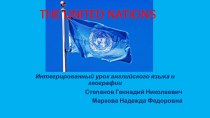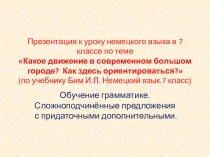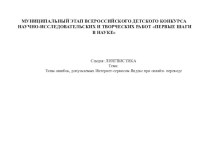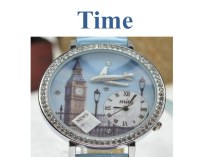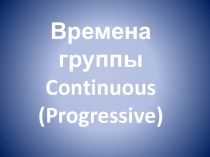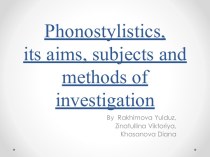- Главная
- Разное
- Бизнес и предпринимательство
- Образование
- Развлечения
- Государство
- Спорт
- Графика
- Культурология
- Еда и кулинария
- Лингвистика
- Религиоведение
- Черчение
- Физкультура
- ИЗО
- Психология
- Социология
- Английский язык
- Астрономия
- Алгебра
- Биология
- География
- Геометрия
- Детские презентации
- Информатика
- История
- Литература
- Маркетинг
- Математика
- Медицина
- Менеджмент
- Музыка
- МХК
- Немецкий язык
- ОБЖ
- Обществознание
- Окружающий мир
- Педагогика
- Русский язык
- Технология
- Физика
- Философия
- Химия
- Шаблоны, картинки для презентаций
- Экология
- Экономика
- Юриспруденция
Что такое findslide.org?
FindSlide.org - это сайт презентаций, докладов, шаблонов в формате PowerPoint.
Обратная связь
Email: Нажмите что бы посмотреть
Презентация на тему Fédération Internationale de Natation (FINA)
Содержание
- 2. Fédération Internationale de Natation (FINA) is the International
- 3. History FINA was founded on July 19,
- 4. Members At the January 2010 FINA Bureau
- 5. Presidents Each presidential term is four years,
- 6. Organization The FINA membership meets every four
- 7. Events FINA organizes one (1) championship involving
- 8. World Anti-Doping Code On 5th March, 2003, the
- 9. Скачать презентацию
- 10. Похожие презентации
Fédération Internationale de Natation (FINA) is the International Federation (IF) recognized by the International Olympic Committee(IOC) for administering international competition in the aquatic sports (its name translated from French is "International Swimming Federation"). It is one of several
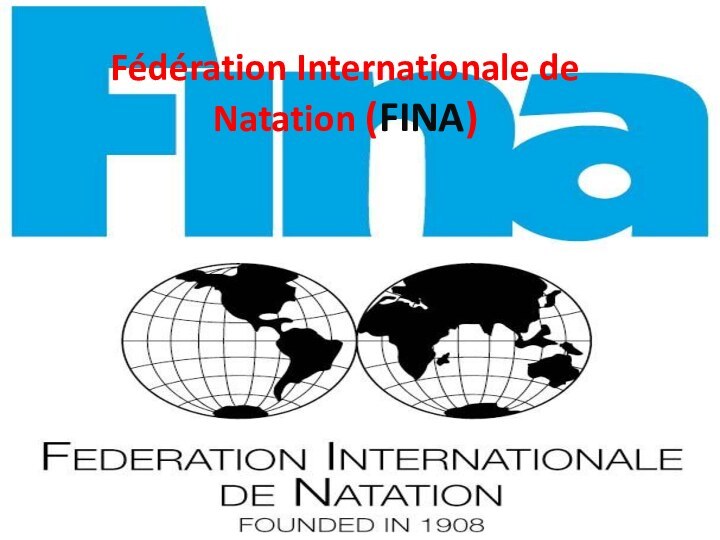
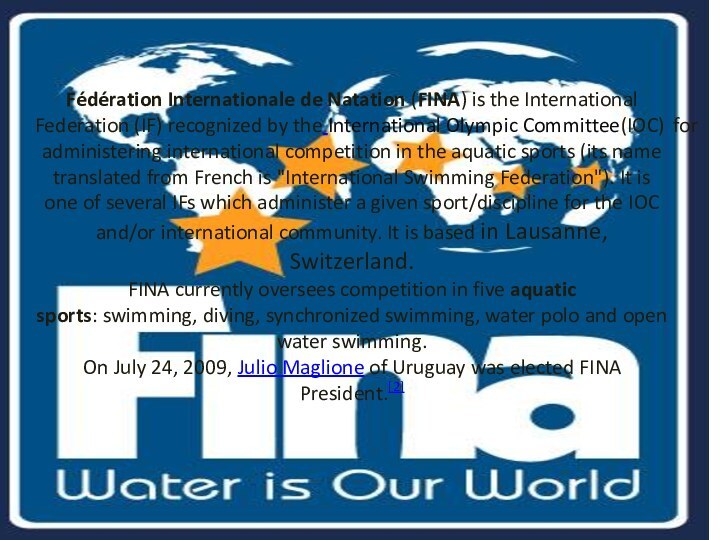

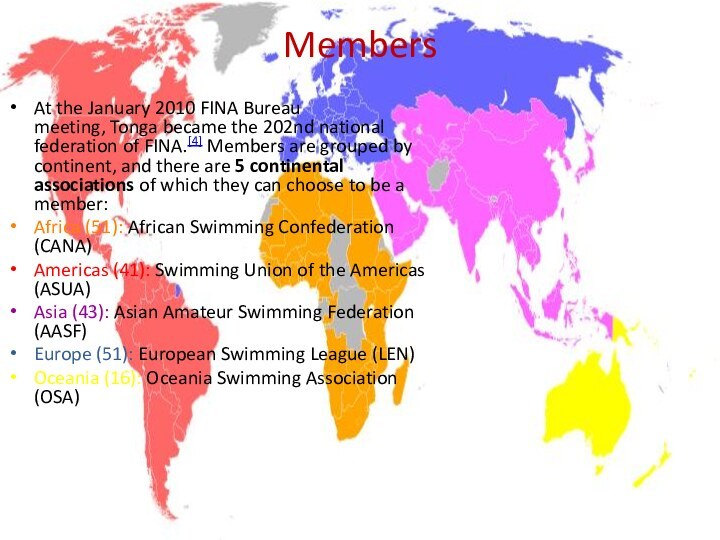

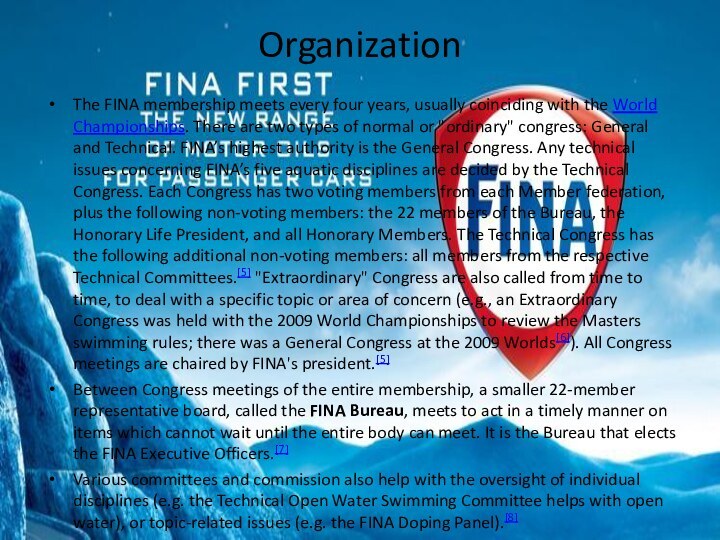

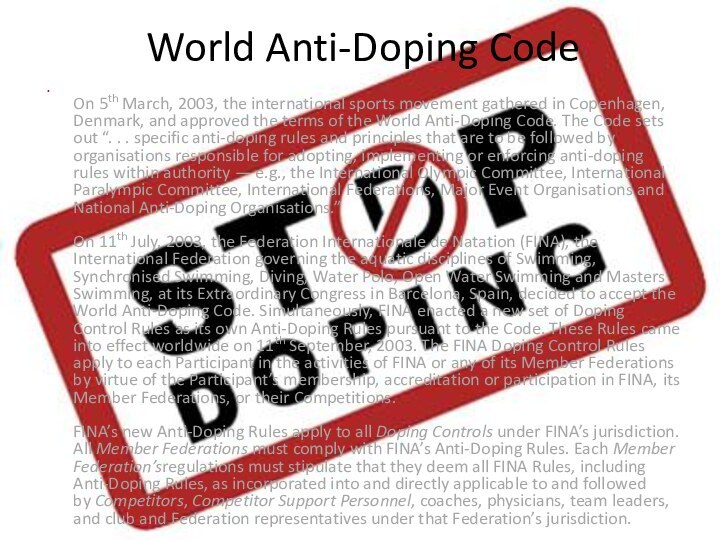
![Fédération Internationale de Natation (FINA) The Bahamas Swimming Federation [BSF] is a Member of FINA and, as](/img/tmb/11/1075542/a5f291b11e574f56cc61c478b8fdc615-720x.jpg)
Слайд 3
History
FINA was founded on July 19, 1908 in
the Manchester Hotel in London, UK at the end of the 1908
Summer Olympics by the Belgian, British, Danish, Finnish, French, German, Hungarian and Swedish Swimming Federations.[3]Number of national federations by year:
1908: 8
1928: 38
1958: 75
1978: 106
1988: 109
2000: 174
2008: 197
2010: 202
Слайд 4
Members
At the January 2010 FINA Bureau meeting, Tonga became the
202nd national federation of FINA.[4] Members are grouped by continent, and
there are 5 continental associations of which they can choose to be a member:Africa (51): African Swimming Confederation (CANA)
Americas (41): Swimming Union of the Americas (ASUA)
Asia (43): Asian Amateur Swimming Federation (AASF)
Europe (51): European Swimming League (LEN)
Oceania (16): Oceania Swimming Association (OSA)
Слайд 5
Presidents
Each presidential term is four years, beginning and
concluding with the year following the Summer Olympics (i.e.,
2009-2013 is the current term).
Слайд 6
Organization
The FINA membership meets every four years, usually
coinciding with the World Championships. There are two types of
normal or "ordinary" congress: General and Technical. FINA’s highest authority is the General Congress. Any technical issues concerning FINA’s five aquatic disciplines are decided by the Technical Congress. Each Congress has two voting members from each Member federation, plus the following non-voting members: the 22 members of the Bureau, the Honorary Life President, and all Honorary Members. The Technical Congress has the following additional non-voting members: all members from the respective Technical Committees.[5] "Extraordinary" Congress are also called from time to time, to deal with a specific topic or area of concern (e.g., an Extraordinary Congress was held with the 2009 World Championships to review the Masters swimming rules; there was a General Congress at the 2009 Worlds[6]). All Congress meetings are chaired by FINA's president.[5]Between Congress meetings of the entire membership, a smaller 22-member representative board, called the FINA Bureau, meets to act in a timely manner on items which cannot wait until the entire body can meet. It is the Bureau that elects the FINA Executive Officers.[7]
Various committees and commission also help with the oversight of individual disciplines (e.g. the Technical Open Water Swimming Committee helps with open water), or topic-related issues (e.g. the FINA Doping Panel).[8]
Слайд 7
Events
FINA organizes one (1) championship involving each of
the five disciplines it oversees (the "World Championships"), as
well championships and circuits in each of the disciplines.[10][edit]World Championships
Main article: FINA World Championships
The biggest FINA event is the biennial World Championships, currently held every odd year. It features competitions in all five aquatic disciplines. Prior to 2000, the event was held every 4 years, in the even year between (Summer) Olympic Games.
[edit]Discipline championships
Swimming: World Swimming Championships (25m), (aka "Short Course Worlds"). Bi-annual event (in even years), swim in 25-meter length pool (Olympic and World Championships are in a 50m pool).
Water Polo: Water Polo World Leagues (men's and women's).
Diving: Diving World Series
Open Water: World Open Water Swimming Championships (aka "Open Water Worlds"). Even years from 2000-2010.
Synchronized Swimming: Synchro World Cup.
Masters: World Masters Championships (aka "Masters Worlds"). Bi-annual, in even years. "Masters" competition is for adults (20 years old and up). This championships features all 5 disciplines.
[edit]Other events
In addition to the championships events listed above, FINA also organizes the following annual events, and sub-championships:
World Cups: in swimming, water polo (men's, women's), diving, open water (10Ks) and synchro.
Grand Prix: Annual race/competition series of multiple events in open water (races over 10-kilometers).
Junior Worlds: A world-level championships restricted to a younger age population (typically under-18, though can vary by discipline/gender). Held in swimming, water polo, diving, and synchronized swimming. Open Water is to begin in 2012.
World Men's Water Polo Development Trophy
